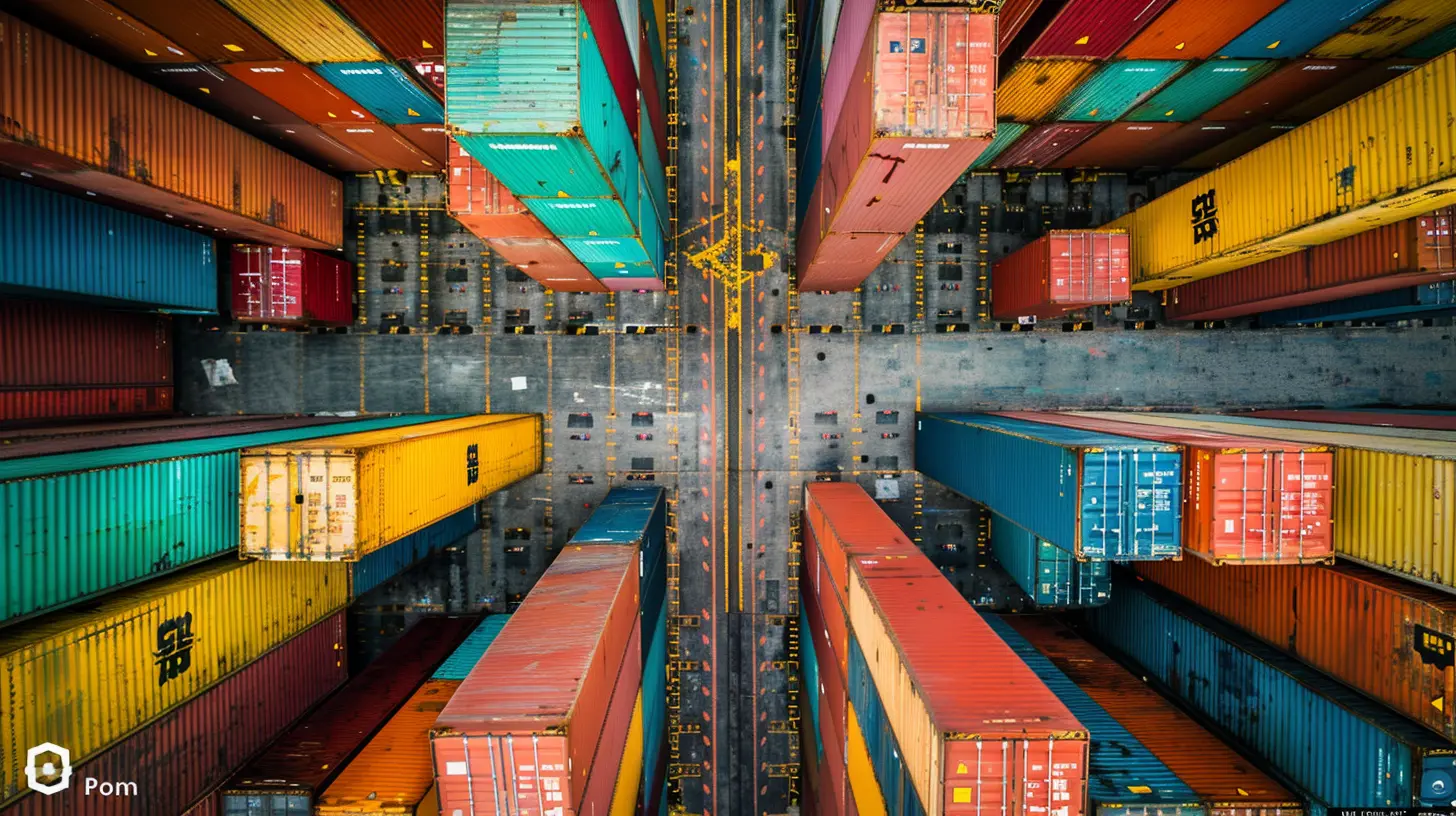Blockchain in Logistics: Creating a More Efficient Global Supply Chain
3 August 2025
The global supply chain is a massive, sprawling network that connects manufacturers, suppliers, distributors, and consumers. It’s a system that keeps the world moving—literally. But let’s face it, this network isn’t perfect. It’s riddled with inefficiencies, delays, and a lack of transparency. Enter blockchain: the buzzword you’ve undoubtedly heard but maybe haven’t fully grasped. In logistics, blockchain is more than just a trend; it’s a game-changer. Let’s dive into how blockchain is reshaping the logistics industry and creating a leaner, more transparent global supply chain.
What Is Blockchain, and Why Does It Matter in Logistics?
Before we get into the nitty-gritty, let’s clear up one thing: blockchain is not just about cryptocurrencies. Sure, it’s the backbone of Bitcoin, but its potential goes far beyond digital money. At its core, blockchain is a digital ledger that records information in a secure, transparent, and immutable way.Picture it like a Google Sheet shared across a massive network—but with one major twist: once something is added, it can’t be deleted or tampered with. Ever. It’s like writing with a permanent marker instead of a pencil. This decentralization and immutability make blockchain a perfect match for supply chains, which often suffer from a lack of trust and transparency.
The Current Challenges in Global Logistics
So, what’s wrong with the current way we do logistics? Plenty. Let’s break it down:1. Lack of Transparency
Have you ever tracked a package and felt like the updates were coming straight out of a mystery novel? "In transit," "delayed," or "waiting for carrier"—these vague status updates leave everyone in the dark. This lack of transparency isn’t just frustrating; it costs businesses millions in inefficiencies and disputes.2. Fraud and Counterfeiting
The global supply chain is rife with fraud. From counterfeit goods infiltrating the system to fake shipping documents, it’s an open invitation for bad actors. And when there’s no reliable way to verify authenticity, the entire system takes a hit.3. Inefficiency and High Costs
Logistics often involve multiple intermediaries—freight forwarders, customs brokers, and warehouses—all operating in silos. This fragmentation leads to delays, lost goods, and soaring costs. Not to mention, manual paperwork still dominates the industry. It’s like trying to send a text using carrier pigeons.4. Difficulty in Tracking Goods
Do you know where that pair of sneakers you ordered is right now? Chances are, neither does the retailer. Real-time tracking is still a pipe dream for many companies because of outdated systems and inconsistent data-sharing.
How Blockchain Solves These Problems
Blockchain is more than just a new tool for logistics; it’s a complete paradigm shift. By integrating blockchain technology, companies can address many long-standing issues plaguing the supply chain.1. Improved Transparency
With blockchain, every transaction is recorded on a decentralized ledger that any authorized party can access. This means no more guesswork. Want to know where your shipment is? Just check the blockchain record. It’s like having a 24/7 CCTV camera on every stage of the supply chain.2. Enhanced Security
Blockchain’s immutability ensures data integrity. Once an entry is added, it can’t be altered. This is a game-changer for combating fraud. Imagine being able to verify the authenticity of a product instantly—no more fake knockoffs, no more shady business.3. Streamlined Operations
Blockchain eliminates the need for multiple intermediaries. Smart contracts—self-executing contracts with terms embedded in code—can automate processes like payments and customs clearance. It’s like having a personal assistant who never sleeps or makes mistakes.4. Real-Time Tracking
Through Internet of Things (IoT) integration, blockchain can provide real-time updates on a product’s location, condition, and journey. Sensors can upload data straight to the blockchain, offering unparalleled visibility. It’s like turning your shipment into a Twitter feed, always updating with the latest status.
Real-Life Applications of Blockchain in Logistics
Still not convinced? Let’s look at how some big players are already using blockchain to revolutionize logistics.1. Walmart’s Food Safety Initiative
Walmart partnered with IBM to use blockchain for tracking food from farm to shelf. By scanning a QR code, you can see the entire journey of your lettuce—where it was grown, harvested, and distributed. This transparency helps reduce food waste and ensures safety. When there’s a contamination scare, they can pinpoint the source in seconds instead of weeks.2. Maersk’s TradeLens Platform
Maersk, a global shipping giant, launched TradeLens, a blockchain-based platform that brings transparency to the shipping process. By digitizing documentation and centrally recording shipping events, they’ve reduced processing times and costs significantly.3. FedEx’s Blockchain Initiative
FedEx is exploring blockchain to improve tracking accuracy and resolve disputes. With a tamper-proof ledger, they can provide indisputable proof of a package’s journey, reducing the “he said, she said” situation in customer disputes.4. Pharma Industry
Pharmaceutical companies are leveraging blockchain to combat counterfeit drugs. By tracking every stage of the drug’s journey, from manufacturing to pharmacy shelves, blockchain ensures the product’s authenticity, potentially saving lives.Challenges to Blockchain Adoption in Logistics
Okay, so blockchain sounds like a silver bullet, doesn’t it? But it’s not without its challenges.1. High Initial Investment
Implementing blockchain is not cheap. It requires significant upfront investment in technology, infrastructure, and training. Smaller companies may find this cost-prohibitive.2. Scalability Issues
Blockchain networks can struggle with scalability. Processing millions of transactions in real-time requires immense computational power and can lead to delays.3. Resistance to Change
Let’s be honest: industries love their comfort zones. Convincing stakeholders to adopt a revolutionary system like blockchain takes time and effort. Old habits die hard.4. Regulation and Standardization
Blockchain is still a relatively new technology, and global regulations around its use in logistics are inconsistent at best. The lack of standardization can create headaches for companies operating across borders.The Future of Blockchain in Logistics
Despite these challenges, the future of blockchain in logistics looks bright. The technology is still in its early stages, but we’re already seeing significant progress. As more companies adopt blockchain and technology evolves, many of today’s limitations will likely fade away.Imagine a world where every product has a digital “passport” that tells its entire story—from raw materials to the customer’s hands. That’s the promise of blockchain: a transparent, efficient, and secure global supply chain.
Final Thoughts: Is Blockchain the Answer?
So, is blockchain the magic wand that will fix all of logistics’ problems? Not exactly. While it’s a powerful tool, it’s not a cure-all. However, its potential to tackle some of the industry’s biggest headaches is undeniable. Think of it as upgrading from a flip phone to a smartphone—not perfect, but a massive leap forward.For companies willing to invest and innovate, blockchain offers unmatched opportunities to cut costs, boost efficiency, and earn customer trust. And as more players jump on board, the ripple effects will likely transform the logistics landscape as we know it.
all images in this post were generated using AI tools
Category:
Blockchain In BusinessAuthor:

Baylor McFarlin
Discussion
rate this article
1 comments
Victoria Wilson
Great insights on the role of blockchain in enhancing supply chain efficiency. It's exciting to see how this technology can transform logistics, fostering transparency and trust in global operations. Thank you for sharing!
August 26, 2025 at 11:31 AM

Baylor McFarlin
Thank you for your kind words! I'm glad you found the insights valuable. Blockchain truly has the potential to revolutionize logistics.


